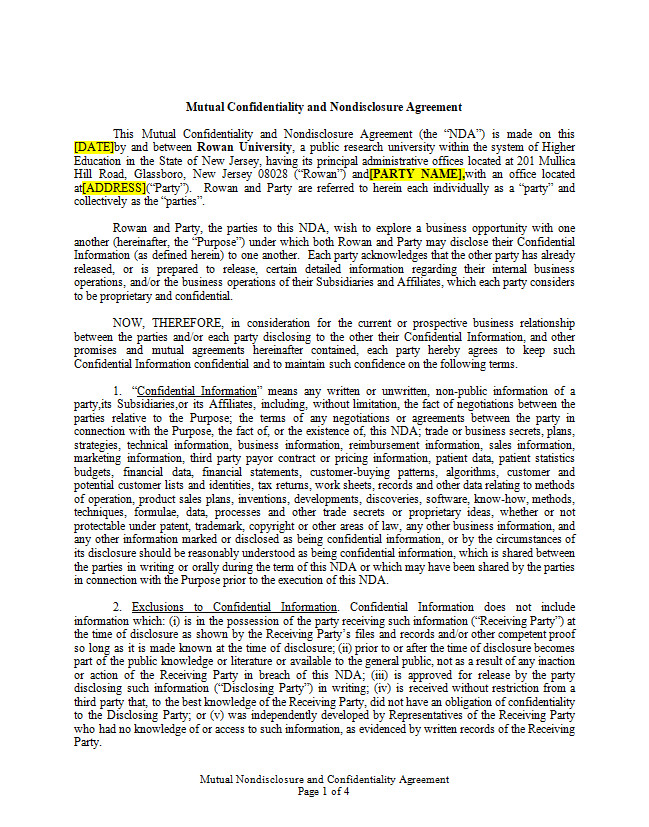
In the world of business, confidentiality is key. Whether you’re sharing sensitive information with a potential partner, investor, or employee, it’s important to have a mutual confidentiality agreement in place to protect your interests.
A mutual confidentiality agreement, also known as a non-disclosure agreement (NDA), is a legal contract that outlines the terms and conditions under which confidential information can be shared between parties while keeping that information private and secure.
What is a Mutual Confidentiality Agreement?
A mutual confidentiality agreement is a document that can be easily downloaded and printed to facilitate the sharing of confidential information between two or more parties. This agreement typically includes provisions regarding the types of information that are considered confidential, the obligations of the parties to keep that information secure, and the consequences of breaching the agreement.
When drafting a mutual confidentiality agreement, it’s important to clearly define what constitutes confidential information, specify the duration of the agreement, outline the permitted uses of the information, and establish procedures for handling any disputes that may arise.
Why Use a Mutual Confidentiality Agreement?
Mutual confidentiality agreements are essential for businesses of all sizes to protect their sensitive information and prevent unauthorized disclosure. By having a signed agreement in place, both parties can feel confident that their confidential information will be kept secure and that any breaches of the agreement will be met with legal consequences.
These agreements help to establish trust between parties and create a framework for the sharing of information in a safe and controlled manner.
How to Create a Mutual Confidentiality Agreement
Creating a mutual confidentiality agreement is a straightforward process that can be done using a template or with the help of a legal professional. Here are some steps to consider when drafting your agreement:
1. Identify the parties involved: Clearly state the names and contact information of all parties agreeing.
2. Define confidential information: Specify the types of information that will be considered confidential and protected under the agreement.
3. Outline obligations: Detail the responsibilities of each party to keep the information secure and confidential.
4. Include duration and termination clauses: Establish the length of time the agreement will be in effect and the conditions under which it can be terminated.
5. Specify consequences of breach: Clearly outline the repercussions for breaching the agreement, such as financial penalties or legal action.
6. Seek legal review: It’s always a good idea to have a legal professional review the agreement to ensure it meets the necessary legal standards and provides adequate protection for all parties involved.
Examples of Mutual Confidentiality Agreements
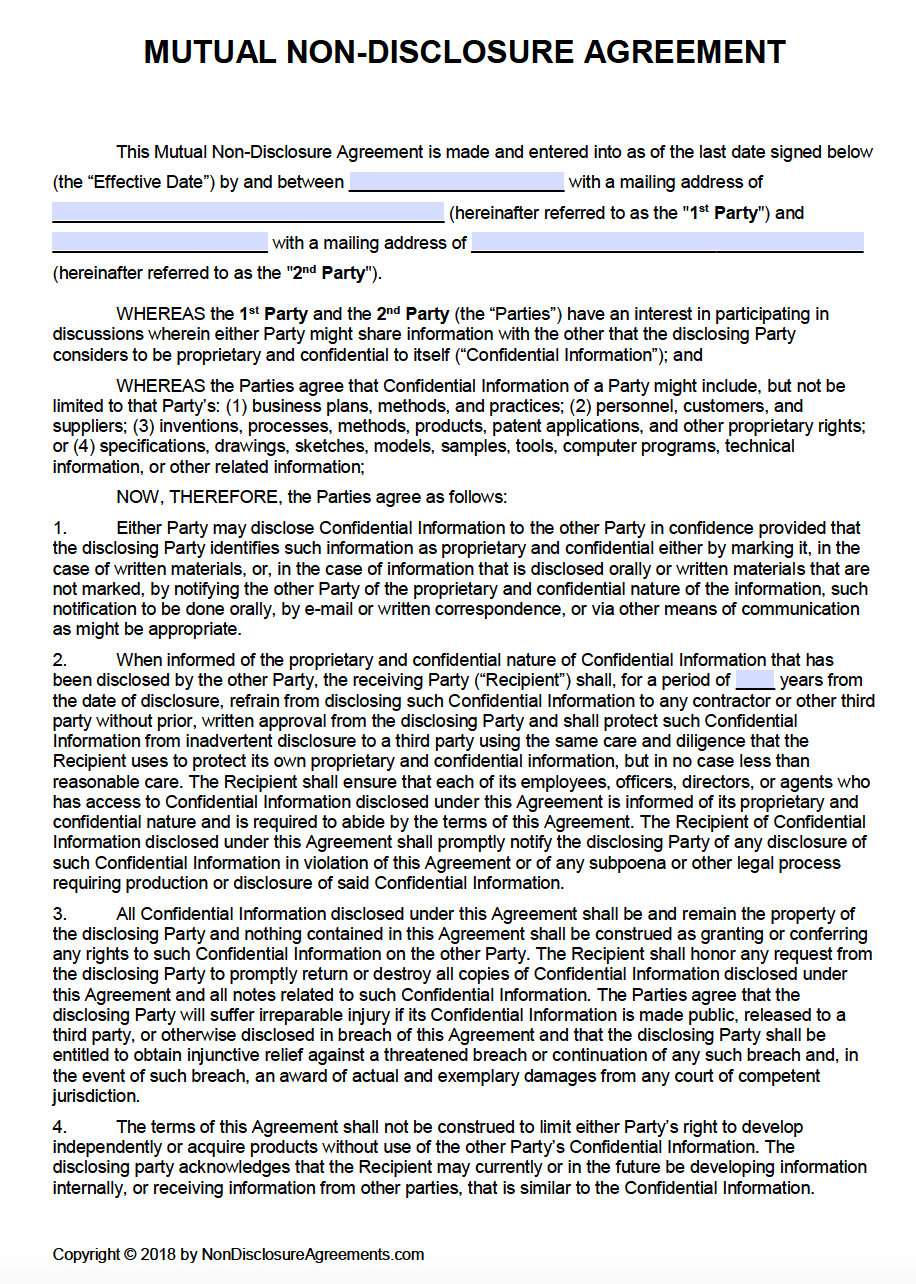
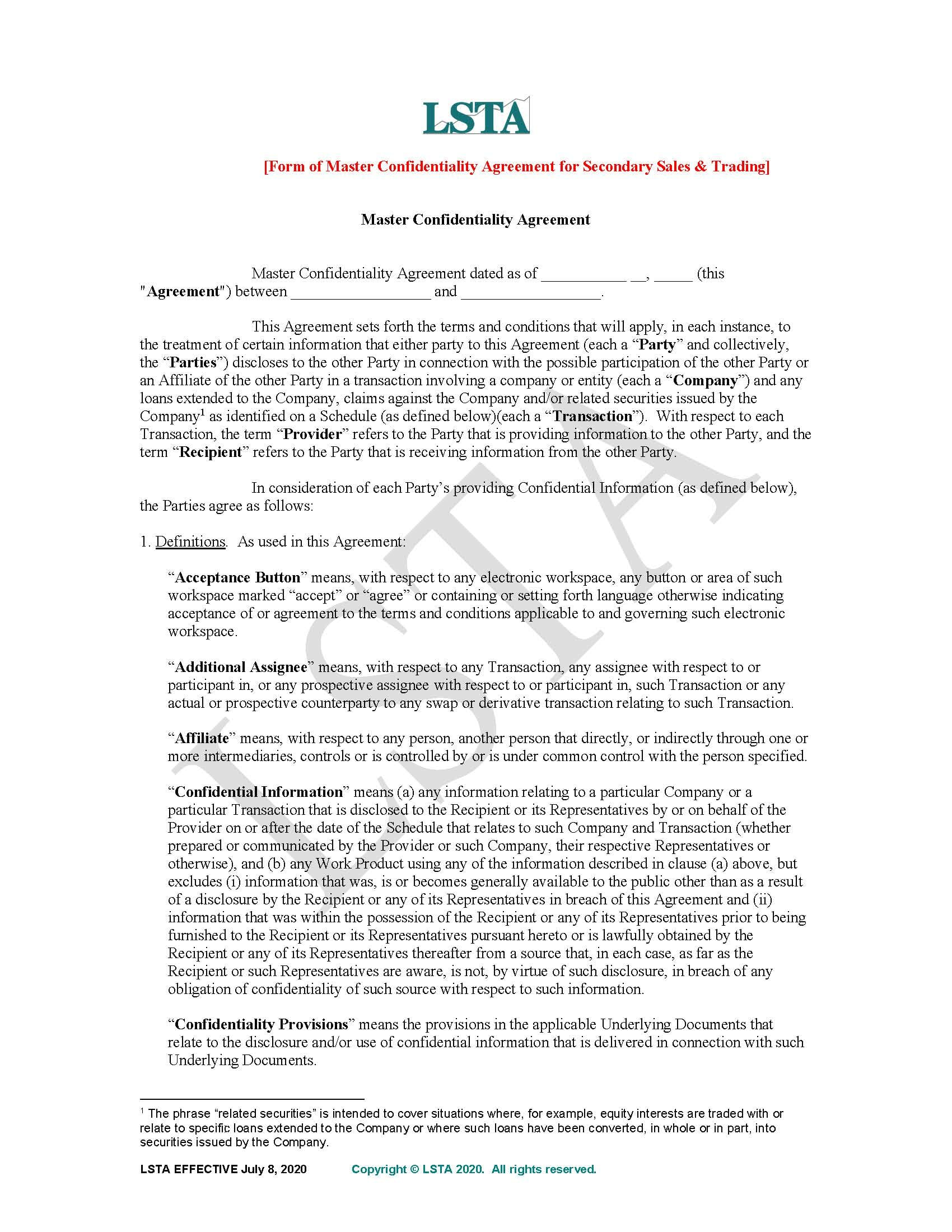
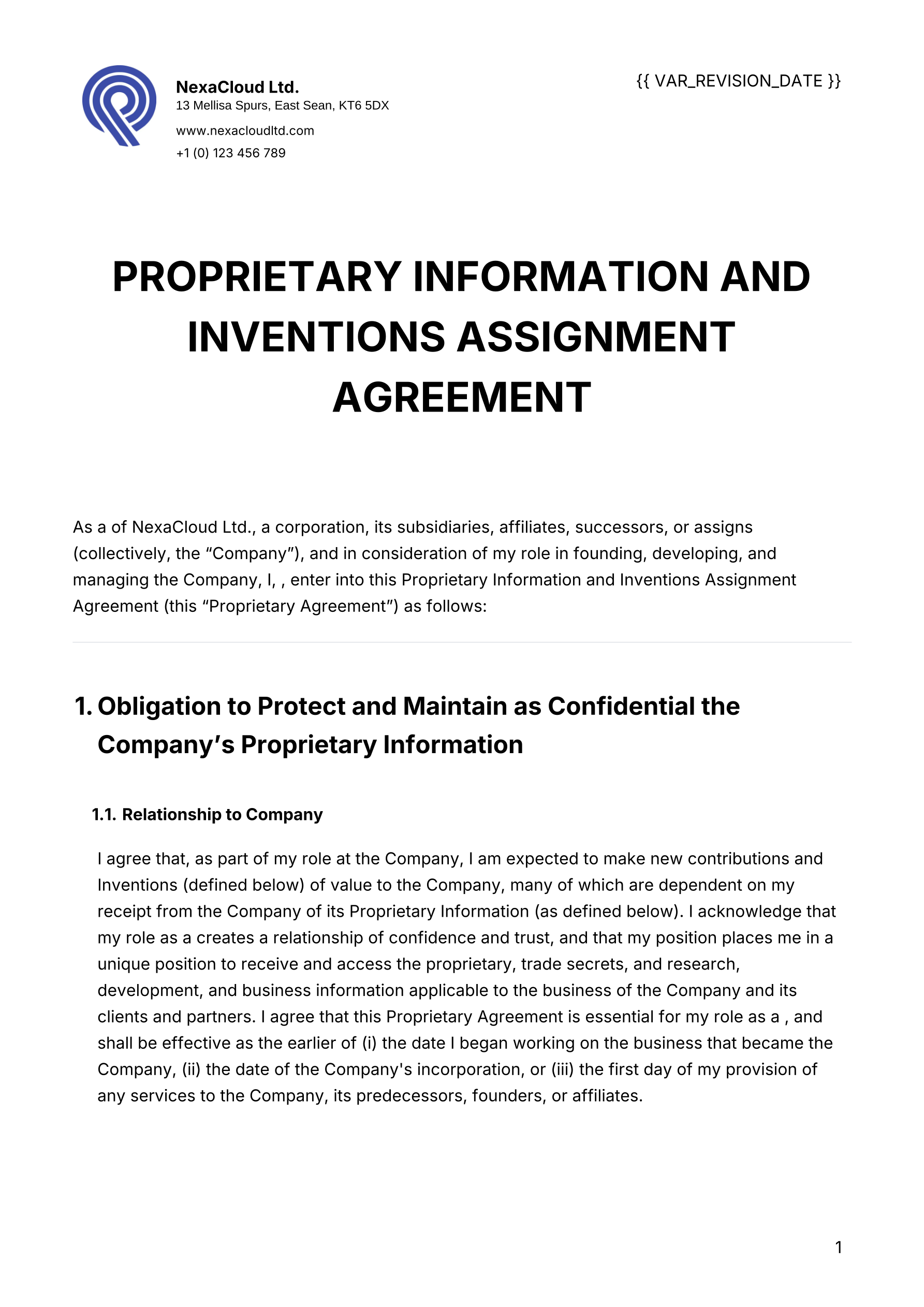
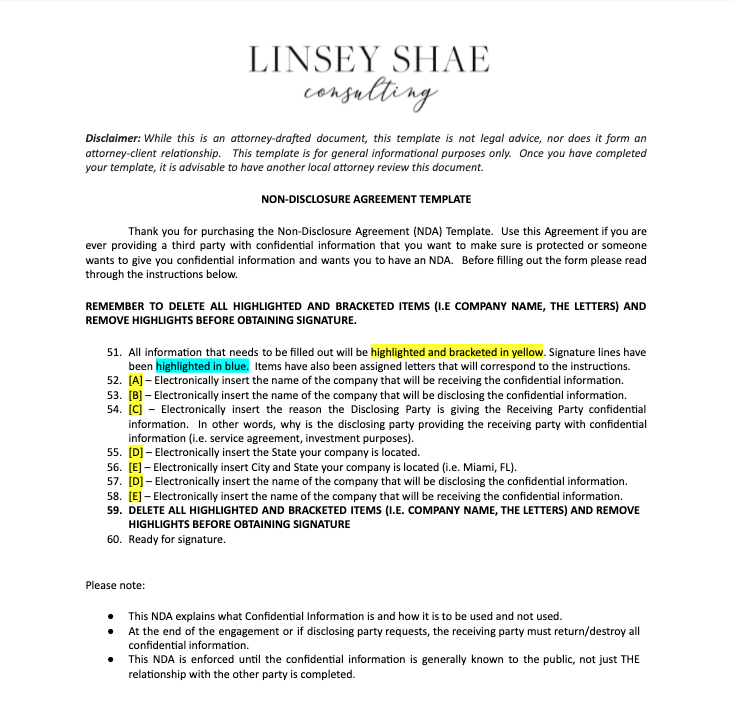
Tips for Successful Mutual Confidentiality Agreements
To ensure that your mutual confidentiality agreement is effective and provides the necessary protection for your confidential information, consider the following tips:
1. Be specific: Clearly define what information is considered confidential and how it should be handled.
2. Use plain language: Avoid using overly complicated legal jargon that may confuse the parties involved.
3. Include all parties: Make sure that all parties who will have access to the confidential information are included in the agreement.
4. Review regularly: Periodically review and update the agreement to ensure that it remains relevant and effective.
5. Keep copies: Make sure that all parties involved have signed copies of the agreement for their records.
6. Seek legal advice: If you’re unsure about any aspect of the agreement, don’t hesitate to consult with a legal professional for guidance.
7. Follow through: Enforce the terms of the agreement and take action if there is a breach to protect your confidential information.
By following these tips and creating a well-crafted mutual confidentiality agreement, you can safeguard your sensitive information and build trust with the parties you are sharing it with. Remember, confidentiality is key in business, and having a solid agreement in place can help you protect your valuable assets and maintain a competitive edge.
Mutual Confidentiality Agreement Template – Download